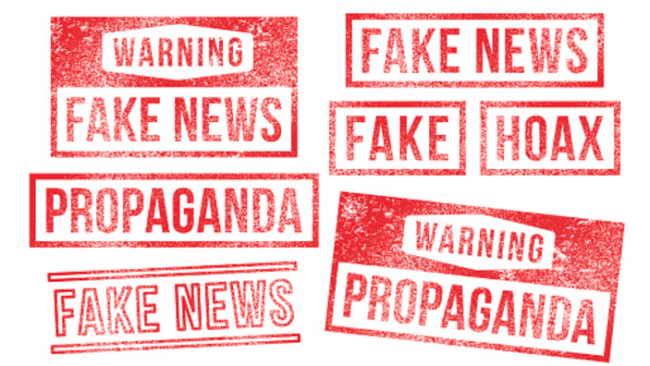A week ago, British Prime Minister Theresa May accused Russia of “weaponizing information” in an effort to “undermine free societies.” She was referring to growing evidence of Russian meddling in Western elections (including the 2016 U.S. presidential election), especially through false news stories and social media manipulation.
President Trump, following brief interactions with Vladimir Putin Nov. 11, responded to the evidence of Russian meddling in a markedly different way. As reported by The Washington Post, Trump made the following remarks from Air Force One, in the middle of his Asia tour:
“He said he didn’t meddle. I asked him again. You can only ask so many times…He said he absolutely did not meddle in our election. He did not do what they are saying he did,” Trump said.
We should be careful not to over-analyze Trump’s verbiage, which is often impromptu, repetitive and disordered. But Trump’s words bear some closer examination. Initially, he merely reports what Putin told him: “He said he didn’t meddle” (emphases added).
Next, he again reports Putin’s words, this time complete with an emphatic modifier: “He said he absolutely did not meddle in our election.”
Finally, he makes a firm assertion of his own, as if it were an independent fact: “He did not do what they are saying he did.”
Trump’s leap from reporter to sooth-sayer captures in a single moment one of his principal weaknesses as leader of our country. Having a president who endorses the word of a transparently hostile foreign leader as fact is dangerous.
Trump’s apparent trust in Putin may be only a show of attempted statecraft. The president has repeatedly boasted about his intention to get along with Putin; rebuking him at an international summit would hardly be conducive to doing so.
But there is reason to think that Trump’s bizarre choice to take Putin at his word is part of a larger pattern of the President being mollified — or intimidated — by actual, personal contact with foreign leaders.
The Atlantic reported in August that leaked transcripts of calls between Trump and foreign leaders (specifically Mexico’s Enrique Peña Nieto and Australia’s Malcolm Turnbull) revealed a President Trump who is relatively easily swayed into agreement by even brief and gentle rebukes.
Trump’s conciliatory behavior during his Asia tour — including his comments about Putin and Russia — seem to fall under this pattern. Indeed, Trump seems to have none of Teddy Roosevelt’s soft speech and none of his big stick.
Trump’s response to Putin highlights the more pressing, general problem of so-called “fake news.” Even as Trump brashly denies actual fake news, propagated by Russia in an effort to undermine free elections, he continues to deem most anything he does not like — or anything that criticizes him — as “fake news.”
This is one of the central paradoxes of Trumpian conservatism: the tendency to discredit credible intelligence and media reports while bolstering the credibility of transparently false and malicious ones.
Trump won the election in large part due to his attacks on traditional media. Many of his supporters no doubt appreciated the rebuke to what they (perhaps, in some cases, justifiably) view as an elitist, liberal and biased world.
But let’s be clear: not everything anti-Trump is fake. Not everything liberal is fake.
The January 2017 Intelligence Community assessment, which provided hard evidence of Russian meddling, is certainly not fake. Vladimir Putin’s denial that his country engaged in purposeful meddling, however, almost certainly is. My point is that fake news exists, but seldom where Trump and his allies claim it does.
The mainstream media has its problems. Declining profits have led to increasingly desperate attempts to increase readership and advertising revenue. Producing sensational — and often biased or even outright false — content is one way to do so.
But serious journalists are still out there, and we must not lose our faith in the validity and importance of the work they do every day. We must not write off those still doing dignified, intelligent and critical journalism because of the advertisement-greedy shenanigans of the American journalistic rabble.
We should also think hard about what we mean when we say “news” and respect the distinction between reportage and commentary. In other words: critical or opinion commentary is not news. It follows that it cannot be fake news, either.
Television punditry that happens to air on “news” channels is not really news. Much of it is extremely biased and uncritical. Its primary purpose is often entertainment, and much of it is just bad. We have fallen a long way since the famous debates between Gore Vidal and William F. Buckley, Jr.
I’m not suggesting that commentary is unimportant. It’s vital, and with the transparent reporting of facts and everyday happenings, it constitutes the vital force underpinning our liberal democracy.
But commentary must be chosen and evaluated wisely. Some of it is smart and sharply reasoned, while much of it is impetuous and unthoughtful or simply unintelligent. We should critically engage with the former and ignore the latter.
We should certainly not let sensational commentary persuade us that the entire mainstream media is “fake news” or erode our belief in the possibility of truth. The stakes of our tempestuous times demand a respect for truth greater than ever — and that includes, first and foremost, a respect for the news.









